new to the gluten free journey?
new to the gluten free journey?

Contents
Toggle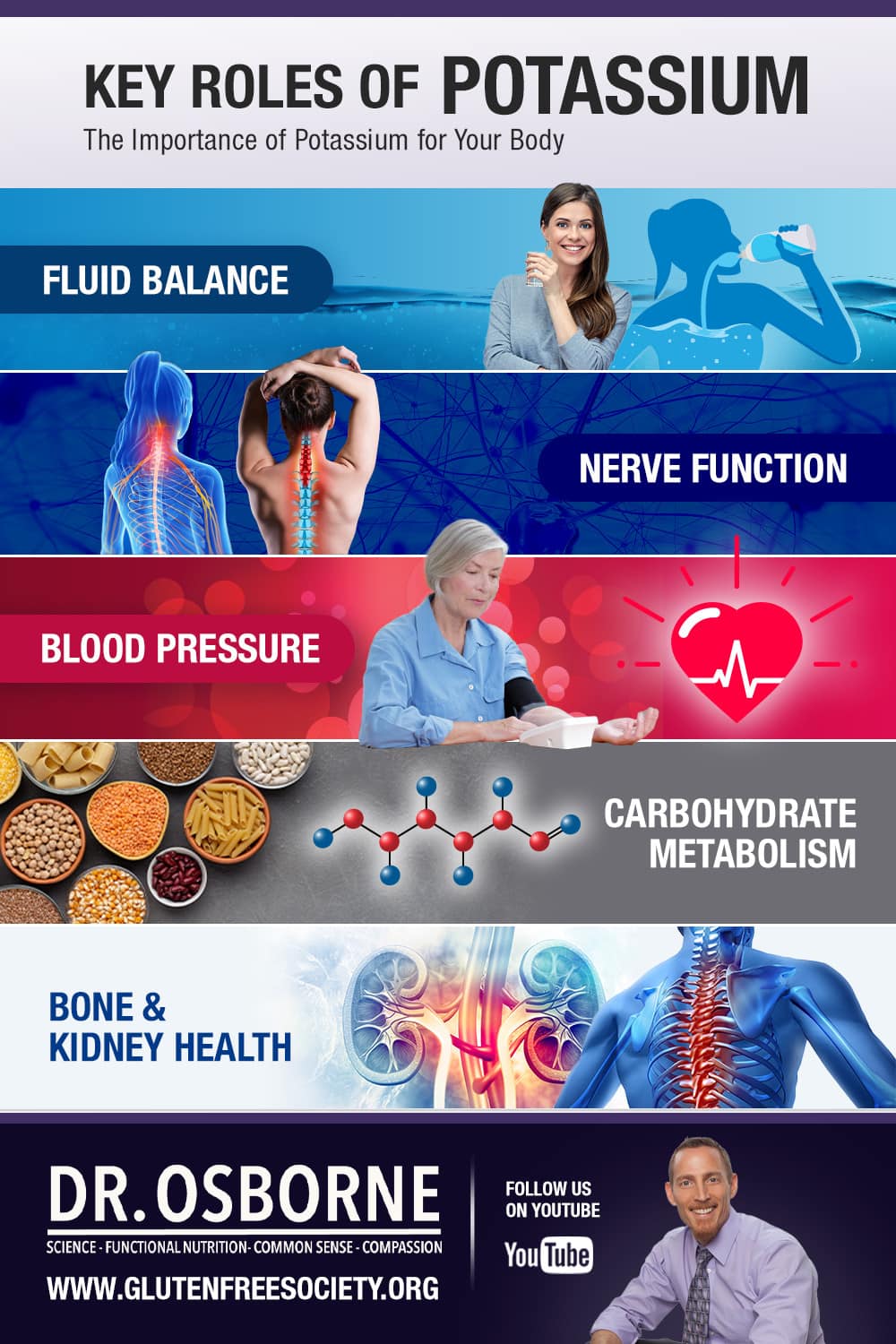
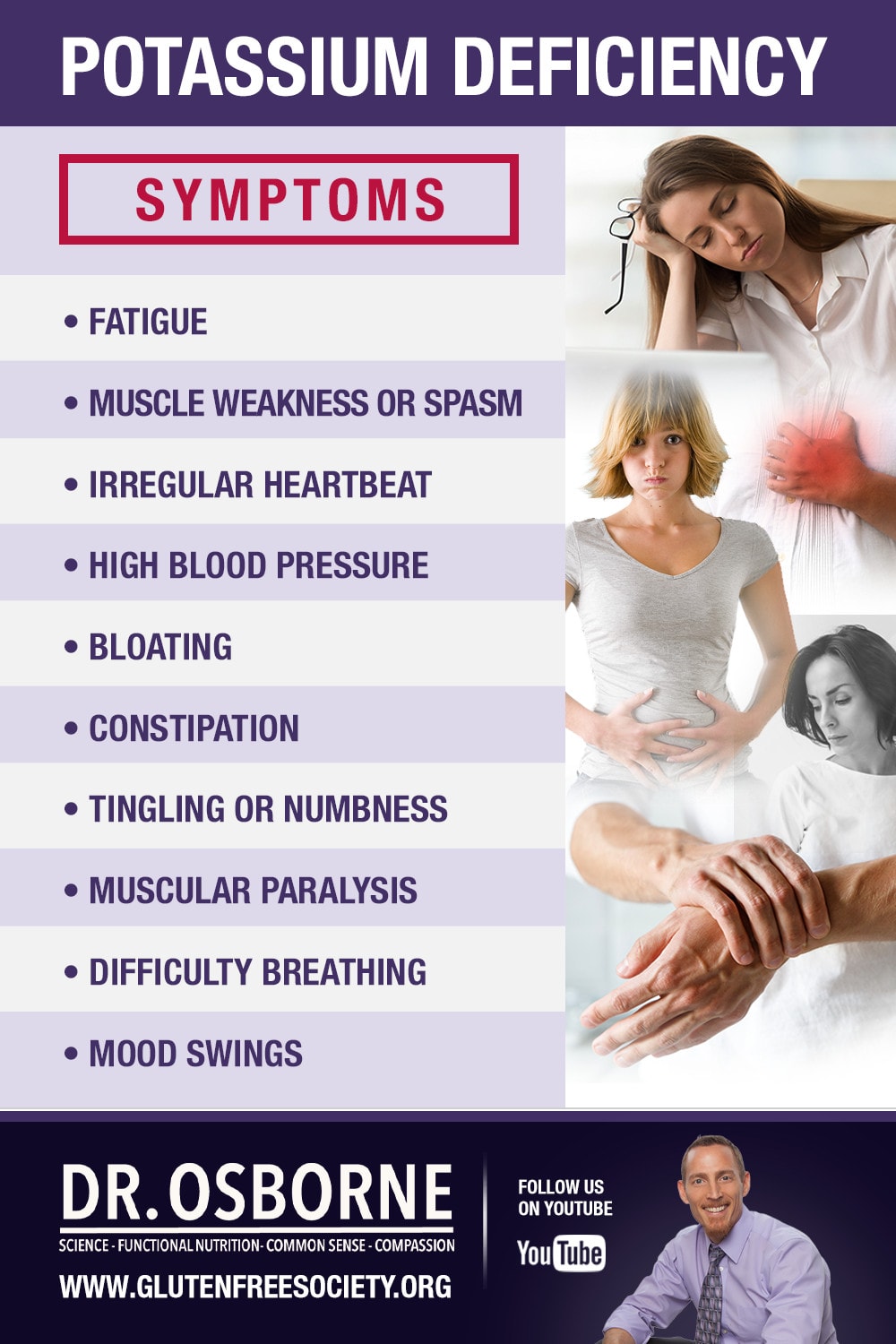 Potassium deficiencies are associated with the following conditions:
Potassium deficiencies are associated with the following conditions:
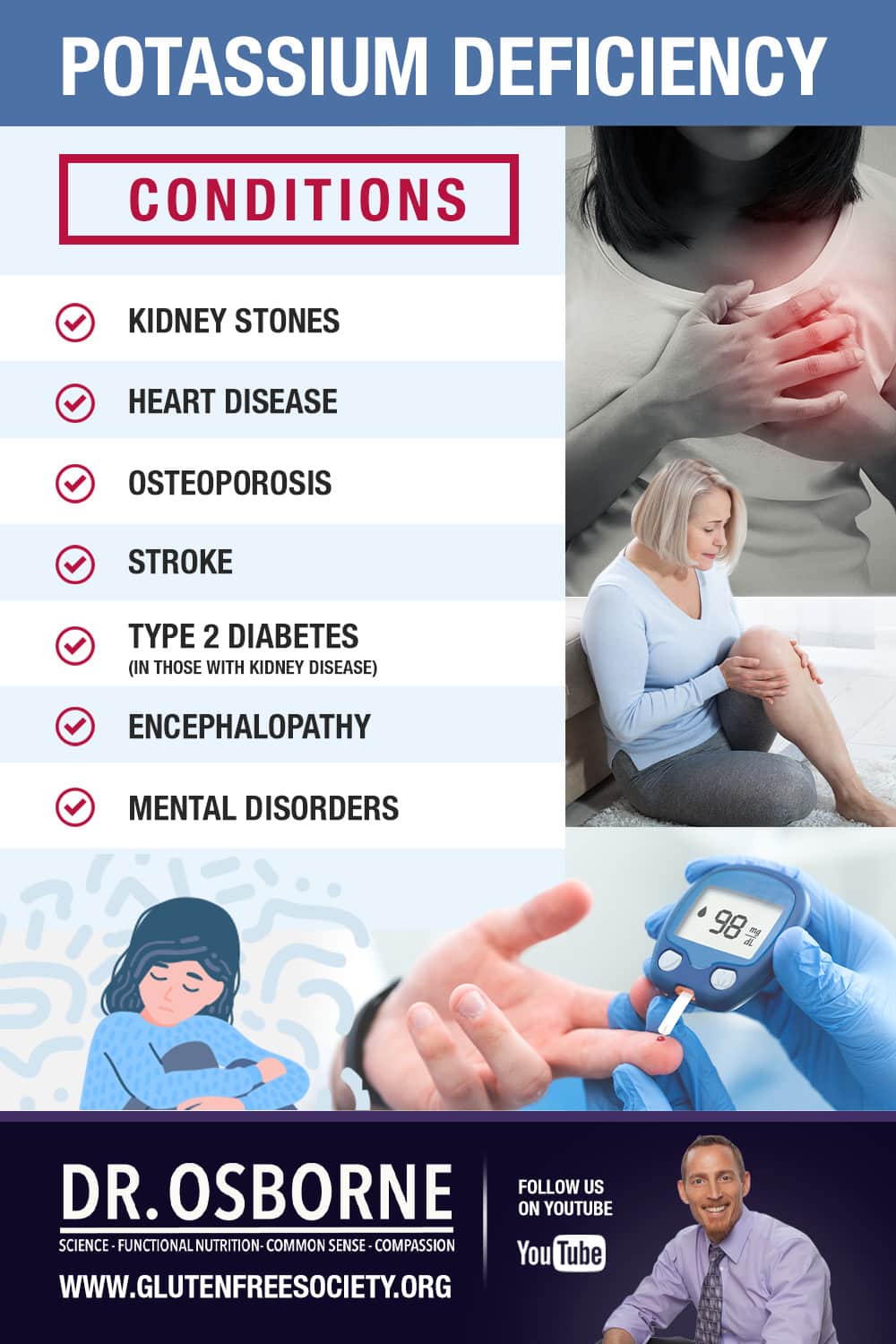
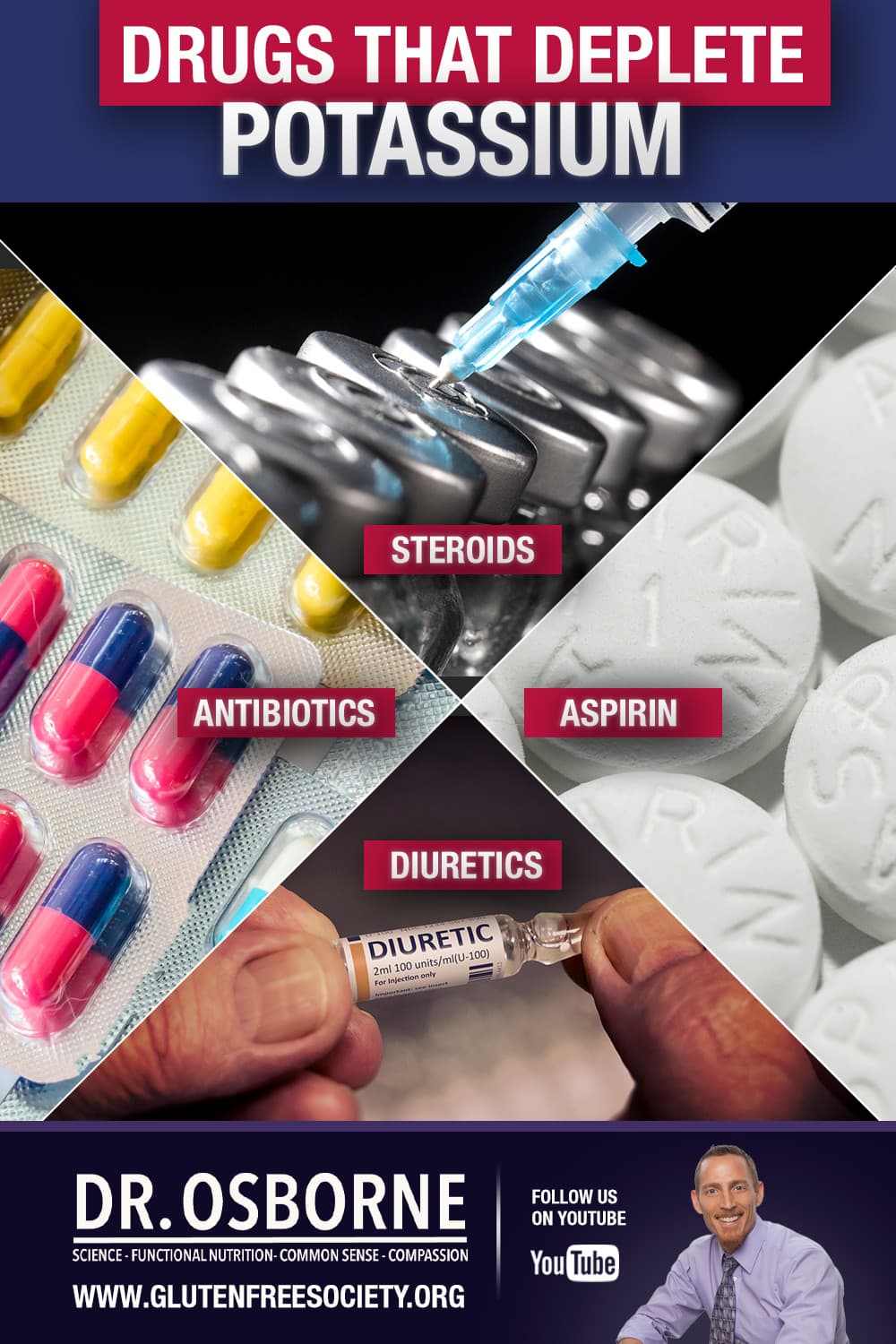 Antibiotics, steroids, diuretics, and aspirin have all been shown to contribute to potassium deficiencies. If you are taking these medicines it is important to monitor your potassium levels. You should also keep in mind the fact that many of the symptoms and diseases caused by potassium deficiency are treated with the aforementioned medications.
Antibiotics, steroids, diuretics, and aspirin have all been shown to contribute to potassium deficiencies. If you are taking these medicines it is important to monitor your potassium levels. You should also keep in mind the fact that many of the symptoms and diseases caused by potassium deficiency are treated with the aforementioned medications.
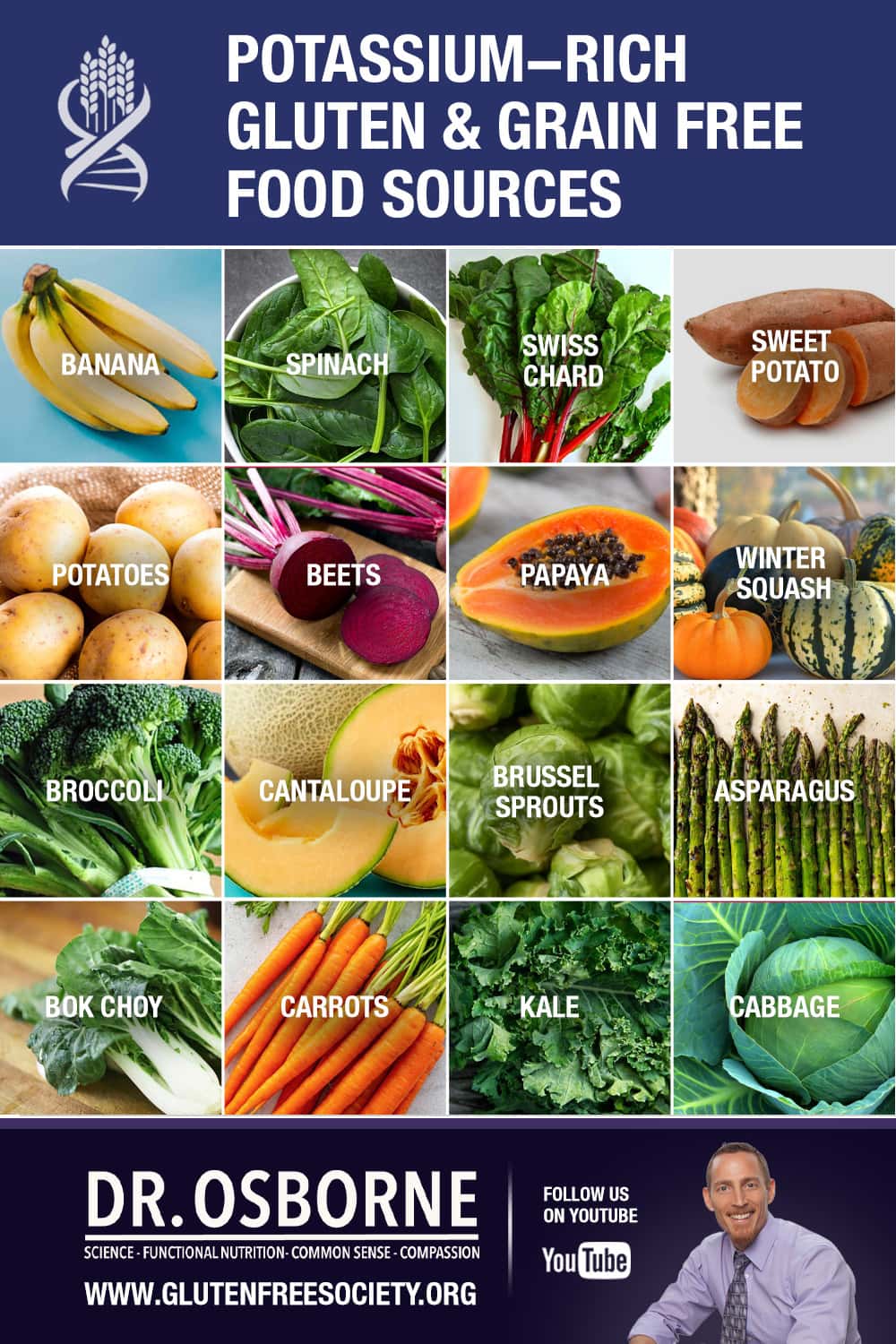 Eating potassium rich foods after an intense workout is especially important. To replenish the electrolytes that are lost through your sweat.
Also, it’s important to note that potassium can’t do its job if you don’t do yours. So, in addition to eating potassium-rich foods, you must also drink plenty of water. Remember that if you filter your water with reverse osmosis (RO), it is important to add electrolytes back to it, as RO depletes naturally occurring electrolytes in the water. Long term consumption of electrolyte depleted water can actually contribute to dehydration.
And finally, if you have gluten sensitivity, the best way to prevent or treat a potassium deficiency is to eat a gluten-free diet.
There’s just no way around it. Fill your plate with nutrient-dense whole foods instead, which will allow your gut to heal and potassium to be absorbed.
Gluten Free Supplements containing Potassium include:
Ultra Nutrients
Ultra K+D
Multi Nutrients Gluten Free
Ultra Electrolytes
Want to learn more about Potassium – Here is Dr. Osborne’s Ultimate Crash Course on Vitamin K
Eating potassium rich foods after an intense workout is especially important. To replenish the electrolytes that are lost through your sweat.
Also, it’s important to note that potassium can’t do its job if you don’t do yours. So, in addition to eating potassium-rich foods, you must also drink plenty of water. Remember that if you filter your water with reverse osmosis (RO), it is important to add electrolytes back to it, as RO depletes naturally occurring electrolytes in the water. Long term consumption of electrolyte depleted water can actually contribute to dehydration.
And finally, if you have gluten sensitivity, the best way to prevent or treat a potassium deficiency is to eat a gluten-free diet.
There’s just no way around it. Fill your plate with nutrient-dense whole foods instead, which will allow your gut to heal and potassium to be absorbed.
Gluten Free Supplements containing Potassium include:
Ultra Nutrients
Ultra K+D
Multi Nutrients Gluten Free
Ultra Electrolytes
Want to learn more about Potassium – Here is Dr. Osborne’s Ultimate Crash Course on Vitamin K
Stay up-to-date with the latest articles, tips, recipes and more.

*These statements have not been evaluated by the Food and Drug Administration. This product is not intended to diagnose, treat, cure or prevent any disease.
If you are pregnant, nursing, taking medication, or have a medical condition, consult your physician before using this product.
The entire contents of this website are based upon the opinions of Peter Osborne, unless otherwise noted. Individual articles are based upon the opinions of the respective author, who retains copyright as marked. The information on this website is not intended to replace a one-on-one relationship with a qualified health care professional and is not intended as medical advice. It is intended as a sharing of knowledge and information from the research and experience of Peter Osborne and his community. Peter Osborne encourages you to make your own health care decisions based upon your research and in partnership with a qualified health care professional.
2 Responses
My potassium is Vibrant-tested slightly high. Is salt supposed to be the balance that potassium needs, so as not to be a danger? If so, what ratio salt to potassium?
Judy, potassium, magnesium and sodium are key electrolytes, and potassium and sodium certainly balance each other out, and magnesium is also important for the balance.
Sodium sensitivity is really a symptom of a potassium deficiency. If you keep your fluids up and electrolytes otherwise in the right balance to not have too high of blood serum concentration, a low-sodium diet isn’t logical. Add salt to taste, let your body be your guide, not some silly RDA that fits a particular statistical profile with no accounting for activity, size, etc. except of that one model.